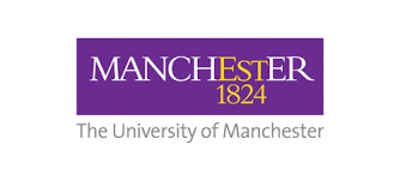Research Staff Promotion Criteria
The University of Manchester has an annual promotion round open to all Research Staff irrespective of their contractual status and external funding stream. Clear promotion criteria is available for all grades of Research Staff and promotion committees openly invite and encourage applications providing evidence of working at a higher level.

What kind of an organisation are you in the context of the Concordat?
The University of Manchester employs more than 12,500 academic and professional services staff including almost 2,000 research staff based across three large multidisciplinary Faculties (Biology, Medicine and Health, Humanities, Science and Engineering). Since securing the HR Excellence in Research Award award in 2011, successive Concordat Action Plans have aimed at improving the support for and development of those whose primary responsibility is to conduct research and who are usually supported by external research grant and contract funding. This defined group includes research assistants, research associates and research fellows and is a diverse and fluid cohort of 1800-2000 research staff.
What challenge were you trying to address with this initiative?
To ensure research staff, irrespective of their funding source or contract type, had the opportunity to apply for promotion in the same way that academic staff have.
What did you do and how does this align with the Principles and keywords you have selected below?
Research staff promotion criteria was developed to align with the academic staff promotion criteria; two sets of criteria were developed for promotion from research assistant to research associate and criteria for promotion from research associate to research fellow. The criteria was developed through a process of discussion and consultation with input from HR, researchers and research leaders. Once the criteria was agreed, they were added to the University HR promotions webpages and also to each Faculty's HR promotion webpages. Training and workshops are provided for both promotion panel members and research staff who want to apply.
What were the challenges in implementation and how did you resolve them?
The challenges related to concern about how the promotion costs would be funded if this had not been costed in to the project the researcher is employed on. One Faculty had already opened promotion opportunities to research staff and we were able to show the financial impact on Schools and Faculties was quite minimal and Schools and Faculties agreed to bear any additional costs.
How did you evaluate the impact of your initiative?
The data on applications for research staff promotions is reviewed and discussed annually by the Research Staff Strategy Group (RSSG). RSSG has oversight of the HREiR process and implementation of the Concordat Action Plan. Research staff promotion workshops are also held annually and RSSG monitors take up and feedback from those workshops.
Were there any surprising or unexpected consequences?
There has been feedback from researchers that there is an unintended consequence for those who are promoted from research associate to research fellow. The promotion can make it more difficult for them to secure another research contract as they become more expensive.
What advice would you give others wanting to do this?
To ensure the research staff promotion criteria align with the academic staff criteria. To involve researchers in the development of the criteria. To discuss with Faculty and School level senior leaders about the costs. Once agreed, to ensure that criteria is integrated into the annual promotion cycle and are visible to all.
Beneficiaries: Research staff
Stakeholders: Researchers Managers of researchers Professional staff Senior/executive team
Concordat principles: Employment
Keywords: Policy Research culture Open Transparent and Merit-based (OTM) recruitment and progression Working conditions Career progression Performance management Career management Recognition
